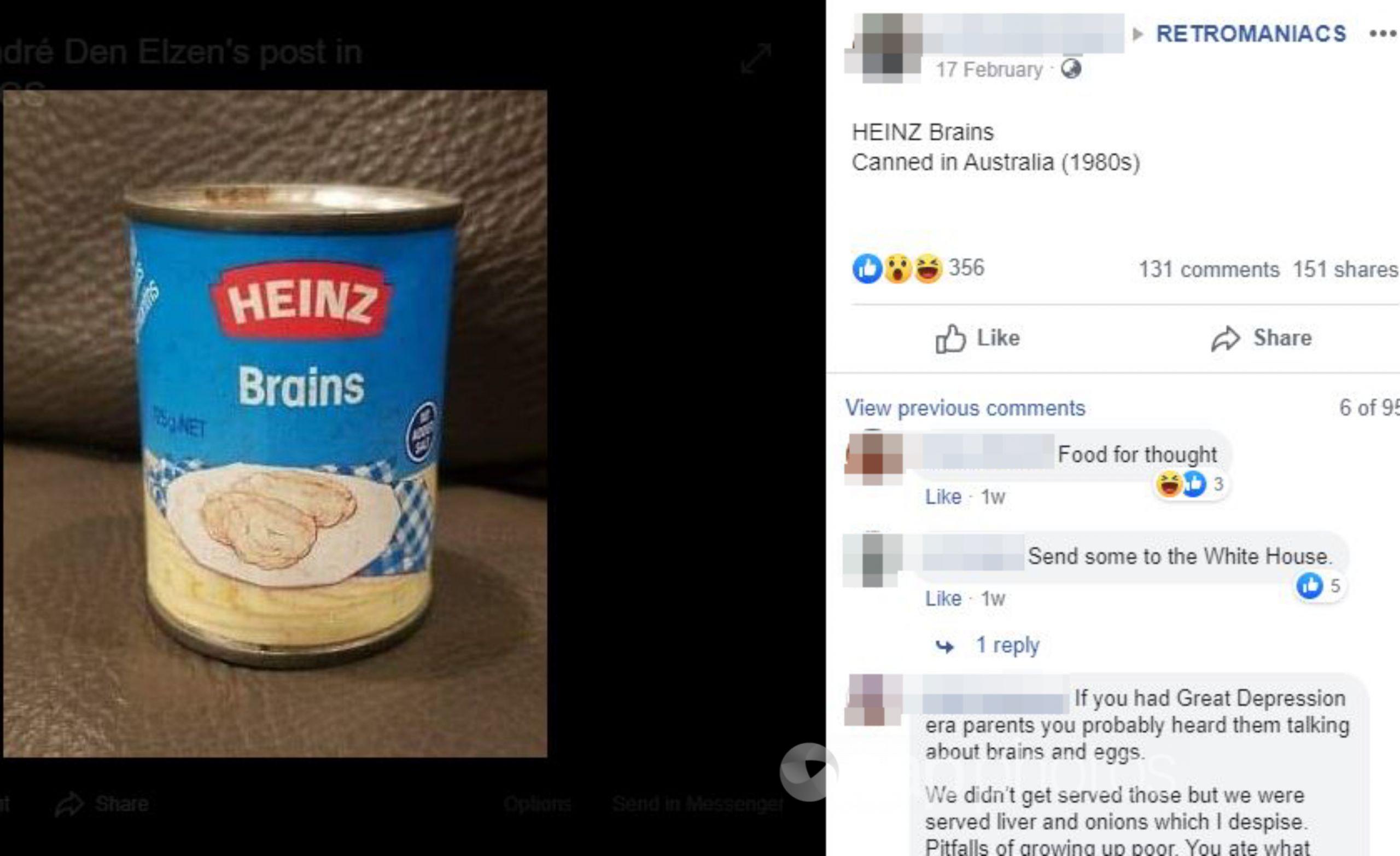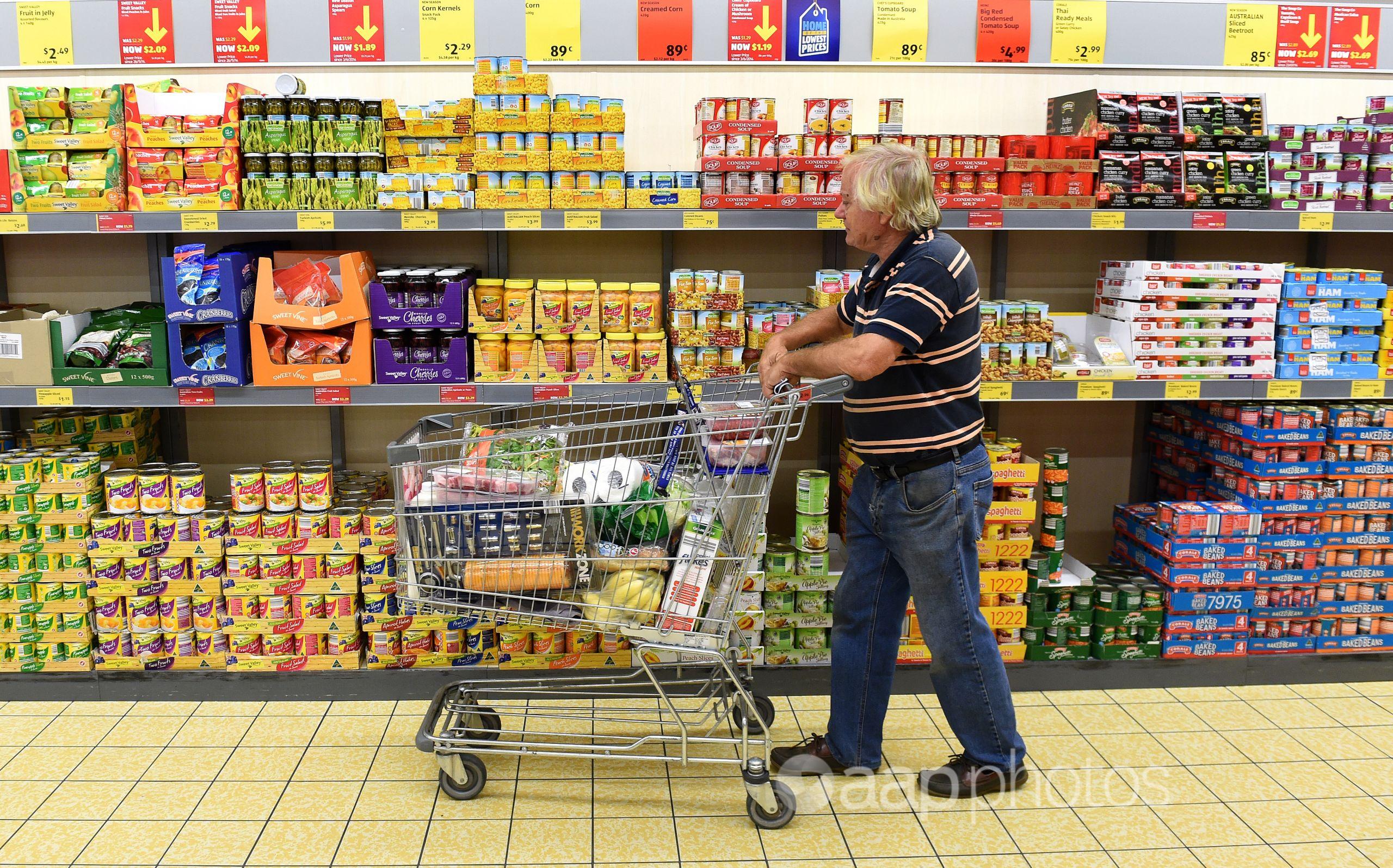The Statement
Brains have been a common enough feature of Australian kitchen menus in the past but a Facebook post claiming to show Heinz canned brains from the 1980s gives pause for thought.
The Facebook post from February 17, 2020, reads, “HEINZ Brains Canned in Australia (1980s)”, and includes a photo of a can bearing the Heinz logo with the word brains written underneath and a picture of two brains on a plate.
The post by Facebook group Retromaniacs, has received over 150 shares, over 25,000 views and attracted comments such as “you are what you eat” or “food for thought”.

The Analysis
Brain recipes appear in the world’s oldest surviving cookbook, Apicius’s De re coquinaria (The Art of Cooking). The tome was compiled by Roman gourmand Marcus Gavius Aspicius in the late 4th or early 5th century AD and lists brains as an ingredient for sausages, stews and puddings.
Around the world, brains and other offal remain on the menu even if their profile has slipped in Australian and many western diets.
Brains found their way onto the plates of Australian households as far back as the 1800s. Edward Abbott’s The English and Australian Cookery Book, originally published in 1864, lists recipes such as a Slippery Bob, comprised of kangaroo brains, flour, pepper and emu fat. The book describes the dish as “bush fare”, requiring “a good appetite and excellent digestion”.
Some Australians may have been served crumbed brains during their childhood and the offal recently made a mainstream comeback of sorts
The Facebook post shows an image of canned brains purportedly bearing the Heinz brand with the caption stating: “Canned in Australia (1980s)”.

AAP FactCheck contacted global food group Kraft Heinz, owner of the Heinz brand, about the post.
A spokesperson for Kraft Heinz responded in an email that the post did not look genuine.
“We do not have any record of this product, and the representation of the Heinz logo does not accord with any of our registered trademarks, past or present,” the spokesperson said.
The spokesperson told AAP FactCheck that as far as the company was aware it had never sold canned brains in Australia.
“A check was carried out on a database of Heinz products in Australia and it didn’t appear there,” the spokesperson said.
AAP FactCheck conducted a reverse image search on the photo and found three results linked to the website picclick.co.uk. The earliest example was dated May 29, 2018. The site displays the photo as part of an Ebay auction item from a vendor called Starporium and the product title reads: “Vintage Heinz Canned Brains Infant Food Zombie Australia Real”.
AAP FactCheck sought comment from the Ebay user regarding the origin of the image but received no response at the time of publication.
The Verdict
Based on the evidence, AAP FactCheck found the Facebook post to be false. According to a Kraft Heinz spokesperson, there is no record of a Heinz-branded canned brains product being sold in Australia. In addition, Kraft Heinz said the Heinz logo appearing on the can does not match past or present registered trademarks of the the company.
False – The primary claims of the content are factually inaccurate.
* AAP FactCheck is accredited by the Poynter Institute’s International Fact-Checking Network, which promotes best practice through a stringent and transparent Code of Principles. https://factcheck.aap.com.au/
All information, text and images included on the AAP Websites is for personal use only and may not be re-written, copied, re-sold or re-distributed, framed, linked, shared onto social media or otherwise used whether for compensation of any kind or not, unless you have the prior written permission of AAP. For more information, please refer to our standard terms and conditions.

















